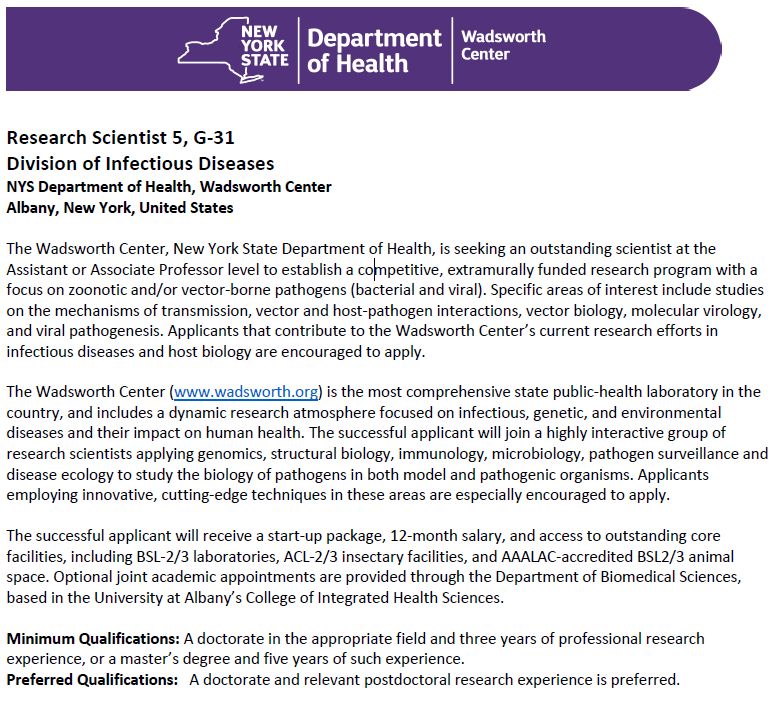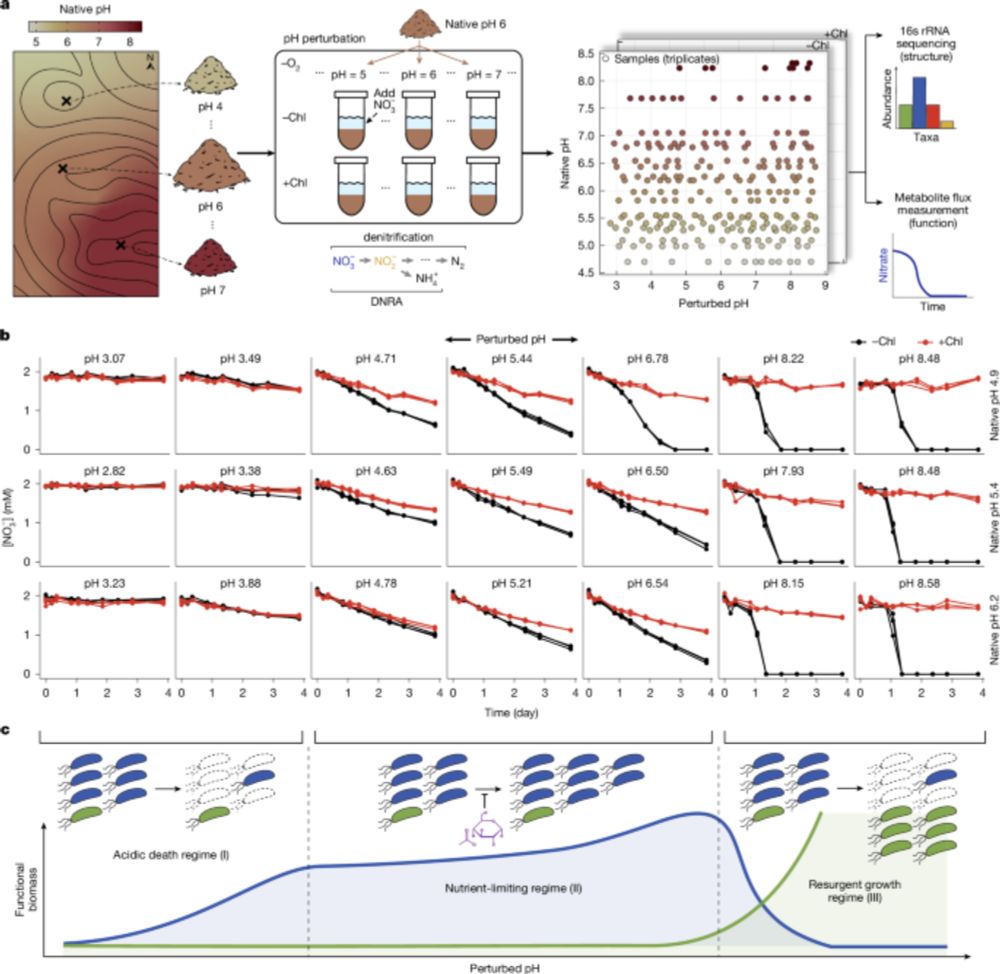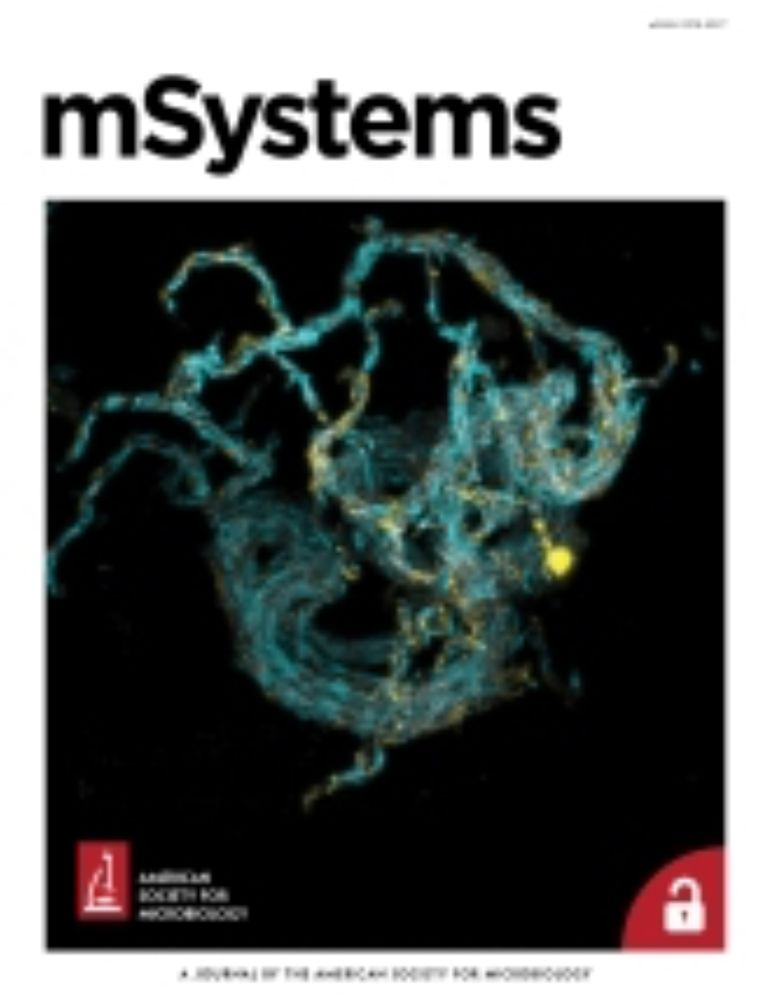Glen Dsouza
@nonresidentdesi.bsky.social
1.2K followers
560 following
71 posts
Assistant Professor@ASU | Microbial behaviour and interactions at the Microscale
https://www.microbialeco.systems/
Posts
Media
Videos
Starter Packs
Pinned
Glen Dsouza
@nonresidentdesi.bsky.social
· Jun 13
Reposted by Glen Dsouza
Reposted by Glen Dsouza
Reposted by Glen Dsouza
Zamin Iqbal
@zaminiqbal.bsky.social
· Aug 8

Fluid flow generates bacterial conjugation hot spots by increasing the rate of shear-driven cell–cell encounters | PNAS
Conjugation accelerates bacterial evolution by enabling bacteria to acquire genes
horizontally from their neighbors. Plasmid donors must physically...
www.pnas.org
Reposted by Glen Dsouza
Reposted by Glen Dsouza
Christoph Kaleta
@kaletalab.bsky.social
· Jul 22

Multi-omics analysis highlights the link of aging-related cognitive decline with systemic inflammation and alterations of tissue-maintenance
Aging-related cognitive decline is associated with changes across different tissues and the gut microbiome, including dysfunction of the gut-brain axis. However, only few studies have linked multi-org...
www.biorxiv.org
Reposted by Glen Dsouza
Reposted by Glen Dsouza
Glen Dsouza
@nonresidentdesi.bsky.social
· Jul 18
Noah Fierer
@noahfierer.bsky.social
· Jul 18

A periodic table of bacteria?: Mapping bacterial diversity in trait space
Bacterial diversity can be overwhelming. There is an ever-expanding number of bacterial taxa being discovered, but many of these taxa remain uncharacterized with unknown traits and environmental prefe...
www.biorxiv.org
Reposted by Glen Dsouza
Noah Fierer
@noahfierer.bsky.social
· Jul 18

A periodic table of bacteria?: Mapping bacterial diversity in trait space
Bacterial diversity can be overwhelming. There is an ever-expanding number of bacterial taxa being discovered, but many of these taxa remain uncharacterized with unknown traits and environmental prefe...
www.biorxiv.org
Reposted by Glen Dsouza
Reposted by Glen Dsouza
Reposted by Glen Dsouza
Ka Wai Ma
@kawaima.bsky.social
· Jul 7
Coordinated action by individuals orchestrates infection through the division of labour
Nature Reviews Microbiology - In this Journal Club, Ka-Wai Ma discusses a paper that establishes that phenotypic heterogeneity and division of labour promote plant infection.
rdcu.be
Reposted by Glen Dsouza
Glen Dsouza
@nonresidentdesi.bsky.social
· Jun 30
Reposted by Glen Dsouza
Glen Dsouza
@nonresidentdesi.bsky.social
· Jun 30












